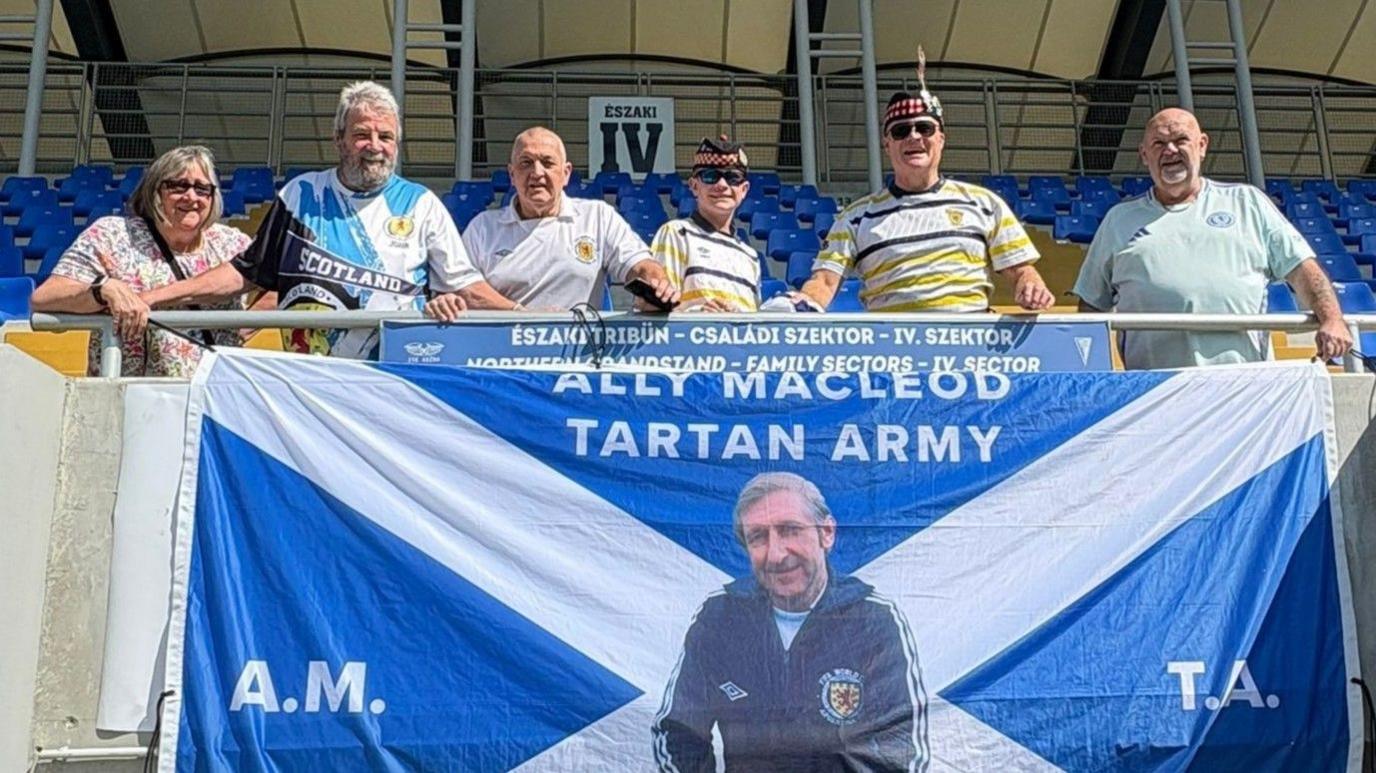A small group of Scotland fans traveled over 830 miles to Hungary for a World Cup qualifier against Belarus, despite the game being played behind closed doors due to Belarus’s ban from hosting home matches. The fans, who traveled from Copenhagen, even accessed the stadium for photos. They expressed disappointment at not being allowed in but remained in good spirits, planning to watch the game on TV with other fans. Their journey highlights the unwavering dedication of football fans and raises questions about Belarus’s participation in the competition given the current political climate.
In a remarkable display of unwavering dedication, a small contingent of Scotland fans embarked on an extraordinary journey, traveling over 830 miles to Zalaegerszeg, Hungary, for their nation's World Cup qualifier against Belarus. This act of devotion is even more astounding considering the match was being held behind closed doors, a consequence of Belarus's ban from hosting home games due to their government's support for the Russian invasion of Ukraine.
Undeterred by the closed-door policy, these intrepid supporters made their way to the ZTE Arena, the venue for the match, and even managed to gain access, posing for photographs in the stadium's sunshine-drenched stands hours before kickoff. Their presence served as a powerful symbol of their commitment to the Scotland national team, even in the face of logistical hurdles and political complexities.
The group of fans, including Steven McNab, Cammy McNab, John Grigor, Jane Grigor, Jim Todd, and James Todd, shared their story with BBC Scotland, recounting their journey from Copenhagen, where they had watched Scotland's 0-0 draw with Denmark on Friday. From the Danish capital, they traveled by plane to Budapest, followed by a train journey to Zalaegerszeg, a town near the borders of Austria and Slovenia. Their route spanned a considerable distance, underscoring the lengths they were willing to go to support their team.
"There were cheap flights to Budapest," one of the fans explained, highlighting the practical considerations that influenced their travel plans. "Scotland trips are fantastic, but usually the worst bit is the 90 minutes. So, when we heard this game was on and we couldn't get in - we just had to come!" This candid admission encapsulates the spirit of many football fans, who view supporting their team as an integral part of their lives, regardless of the circumstances.
Despite their efforts, the fans were informed in no uncertain terms that they would not be allowed into the stadium for the match. However, their spirits remained high, buoyed by the camaraderie and shared passion for Scotland. Jane added, "We've been told they are trying to organise somewhere for Scotland fans to go and watch on the TV, so we'll probably go there." This positive attitude reflects the resilience and adaptability of football supporters, who often find ways to enjoy the match experience even when faced with unexpected challenges.
One of the fans expressed frustration with the situation, questioning Belarus's participation in the competition. "We have a great time wherever we go. I fully believe we should be in there. It's ridiculous. I don't understand why Belarus are even allowed in the competition." This sentiment highlights the ethical dilemmas surrounding sporting events in the context of international conflicts, sparking debate about the role of sports in promoting peace and understanding.
The decision to hold the match in a neutral venue, without fans, was a direct result of UEFA's ruling that all Belarusian clubs and national teams participating in its competitions must play games at neutral venues and without spectators. This decision was made in response to the Belarusian government's support for the Russian invasion of Ukraine, reflecting the broader sporting community's efforts to condemn acts of aggression and promote international solidarity.
As the Scotland fans gathered to watch the match on television, their presence in Zalaegerszeg served as a powerful reminder of the enduring passion and loyalty that football inspires. Their journey, against all odds, epitomized the unwavering commitment of fans to their teams, regardless of the obstacles they face. It also highlighted the complex interplay between sports, politics, and international relations, raising important questions about the role of sports in promoting ethical conduct and global harmony.
In the end, the story of these Scotland fans is a testament to the enduring power of football to unite people and inspire acts of extraordinary devotion. Their journey to Hungary, despite the closed-door policy, will undoubtedly be remembered as a symbol of their unwavering support for Scotland and their unyielding passion for the beautiful game.
